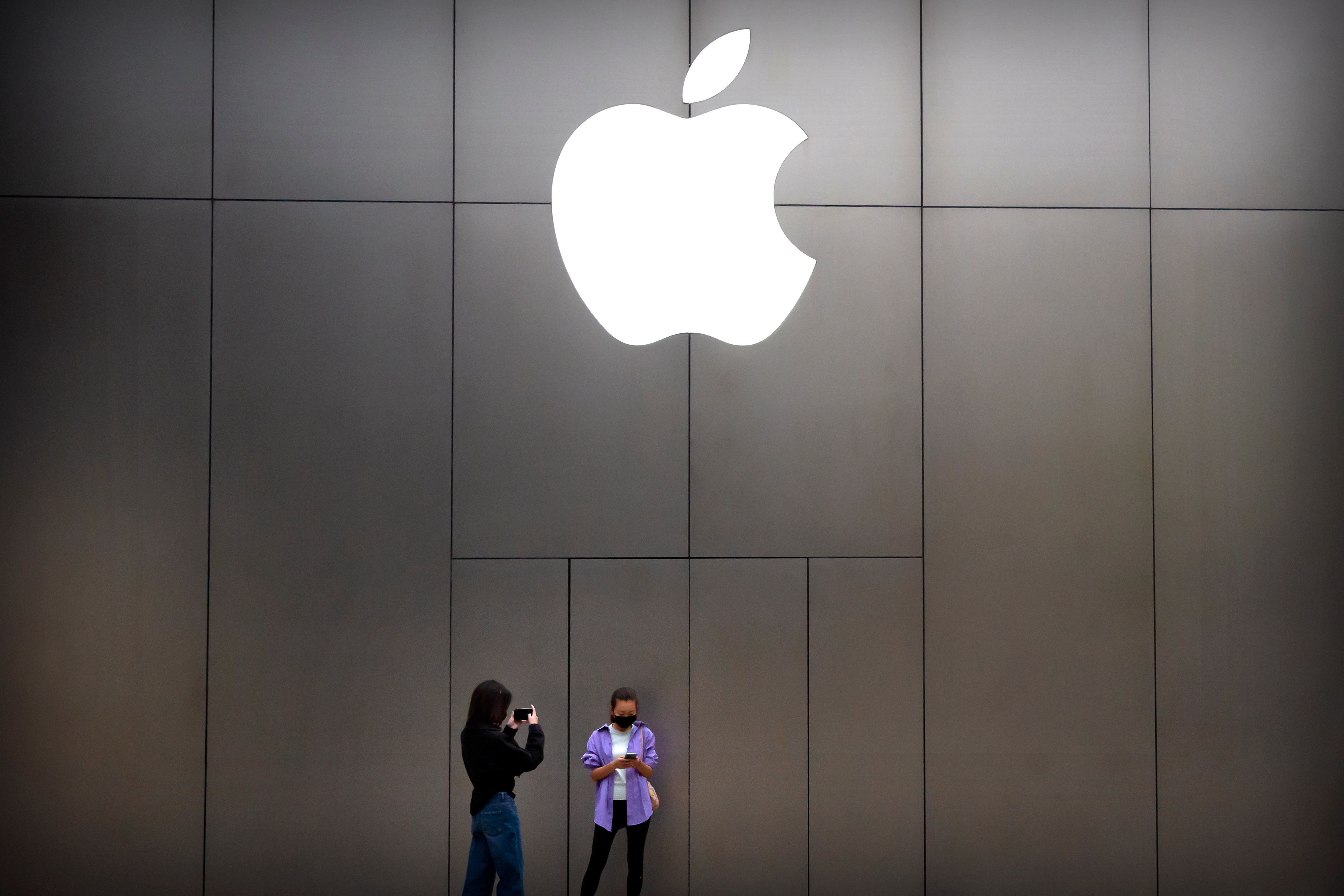Apple's Actions And Their Unintended Consequences For Google

Table of Contents
Apple's Privacy Focus: A Double-Edged Sword for Google's Ad Revenue
Apple's increased emphasis on user privacy, while lauded by many, has significantly impacted Google's lucrative advertising business model. This has created a complex scenario where Google needs to adapt to a new era of privacy-conscious users.
Reduced Ad Targeting and Tracking Capabilities
- Apple's App Tracking Transparency (ATT) framework: Introduced in iOS 14.5, ATT requires apps to obtain explicit user consent before tracking their activity across other apps and websites. This dramatically reduced Google's ability to collect granular user data for targeted advertising.
- Impact on Google's advertising revenue and market share: The limitations imposed by ATT have directly impacted Google's advertising revenue. Precise targeting, a cornerstone of Google's ad model, became less effective, leading to a decrease in ad click-through rates and overall conversion rates. This has forced Google to explore alternative advertising strategies.
- Shift towards privacy-focused advertising strategies: Google has responded by investing heavily in privacy-preserving technologies and contextual advertising, moving away from reliance on individual user tracking. This shift represents a major change in the industry’s approach to digital advertising.
The Rise of Privacy-Oriented Search Alternatives
Apple's proactive stance on privacy has inadvertently fostered the growth of alternative search engines emphasizing user data protection.
- Exploring alternative search engines: Users increasingly concerned about data privacy are more likely to explore search engines that prioritize anonymity and data minimization. This presents a tangible threat to Google's dominant market share in the search engine industry.
- Growth of privacy-focused search engines: DuckDuckGo, a search engine that doesn't track users, has seen substantial growth, directly benefiting from the increased user demand for privacy-centric online experiences. This rise in alternatives highlights a shift in user preferences that Google needs to address.
- Apple's search integration within iOS: While Apple uses Google as its default search engine, its integration of its own search functionality within iOS provides a potential pathway for future competition, impacting Google's dependency on Apple's platform.
The App Store Ecosystem and Its Impact on Google's Services
Apple's control over its App Store ecosystem has created both challenges and opportunities for Google's diverse range of applications and services.
App Store Commission Fees and Competition
- Impact on the profitability of Google's apps: Apple's 15-30% commission on in-app purchases significantly impacts Google's app profitability, particularly for revenue-generating apps like YouTube and Google Play. This impacts Google's overall revenue and profit margins.
- Competitive landscape within the App Store: The App Store is a fiercely competitive marketplace, and Apple’s policies can influence which apps thrive and which struggle. Google faces intense competition from other apps in various categories.
- Implications of Apple's policies on Google's app development and innovation: Apple’s policies influence Google's app development strategies, potentially affecting innovation and limiting Google's ability to fully exploit its app potential.
Apple's Growing Integration of Services
Apple's strategic expansion into various service sectors directly competes with Google's existing offerings.
- Competition in maps, payments, and cloud storage: Apple Maps, Apple Pay, and iCloud compete directly with Google Maps, Google Pay, and Google Drive, respectively, impacting Google's market share in these significant sectors.
- Long-term consequences for Google's market share: This competition represents a long-term threat to Google's market share across various service segments, forcing it to continually innovate and improve its offerings to stay competitive.
- Apple's ecosystem lock-in: Apple's integrated ecosystem provides a strong incentive for users to stay within its walled garden, reducing their reliance on Google services and hindering Google’s cross-platform growth.
Hardware Innovation and its Indirect Effects on Google's Software Dominance
Apple's hardware innovations and the resulting tightly integrated ecosystem have indirectly impacted Google's software dominance.
The Success of Apple's Integrated Ecosystem
- Strong user loyalty: Apple's tightly integrated hardware and software create a strong ecosystem lock-in, fostering high user loyalty and reducing reliance on external services like Google's.
- Reduced user reliance on Google services: Apple users are less inclined to use Google services because Apple's ecosystem effectively provides alternatives for many functionalities, thereby weakening Google's presence on Apple devices.
- Effect on Google's Android market share and overall influence: While Android's market share remains substantial, Apple's success showcases the potential power of a highly integrated ecosystem, posing a significant challenge to Google's Android-centric strategy.
Innovation in AR/VR and its Potential to Disrupt Google's Vision
Apple's advancements in AR/VR technologies could significantly alter the future landscape, impacting Google’s efforts in this space.
- Apple's advancements in augmented and virtual reality: Apple's Vision Pro headset represents a significant step into the AR/VR arena, potentially setting new standards for user interaction and experience.
- Impact on Google's AR/VR efforts and future strategies: Apple's advancements force Google to adapt its AR/VR strategy and potentially accelerate its own development to remain competitive in this rapidly evolving market.
- Redefining user interaction and challenging Google's dominance: Apple's innovations in AR/VR have the potential to redefine user interaction with technology, potentially disrupting Google's existing dominance in search and information access.
Conclusion
Apple's actions, driven by a focus on privacy and a tightly controlled ecosystem, are having significant and often unintended consequences for Google. From reduced advertising revenue to increased competition in various markets, Google faces a complex landscape shaped by Apple's decisions. Understanding Apple's impact on Google is crucial for both companies and for anyone interested in the future of the tech industry. To stay informed on this ongoing battle for dominance, continue exploring the impact of Apple’s strategic moves on the tech landscape. Further research into Apple's impact on Google will reveal more unforeseen consequences and opportunities for both giants.

Featured Posts
-
 Yankees Vs Brewers Tracking Injuries Before The Series March 27 30
May 12, 2025
Yankees Vs Brewers Tracking Injuries Before The Series March 27 30
May 12, 2025 -
 Pole Vault Powerhouse Duplantis Diamond League Performance And The Sports Future
May 12, 2025
Pole Vault Powerhouse Duplantis Diamond League Performance And The Sports Future
May 12, 2025 -
 Bulls Fall To Knicks In Another Overtime Heartbreaker
May 12, 2025
Bulls Fall To Knicks In Another Overtime Heartbreaker
May 12, 2025 -
 400m Hurdle World Lead Sydney Mc Laughlin Levrone Triumphs At Grand Slam
May 12, 2025
400m Hurdle World Lead Sydney Mc Laughlin Levrone Triumphs At Grand Slam
May 12, 2025 -
 Chantal Ladesou Son Refuge Familial En Dehors De Paris
May 12, 2025
Chantal Ladesou Son Refuge Familial En Dehors De Paris
May 12, 2025
Latest Posts
-
 Payton Pritchards Career Feat A Testament To His Roots
May 12, 2025
Payton Pritchards Career Feat A Testament To His Roots
May 12, 2025 -
 Payton Pritchard Analyzing His Breakout Year And Nba Sixth Man Of The Year Chances
May 12, 2025
Payton Pritchard Analyzing His Breakout Year And Nba Sixth Man Of The Year Chances
May 12, 2025 -
 The Impact Of Childhood On Payton Pritchards Basketball Achievements
May 12, 2025
The Impact Of Childhood On Payton Pritchards Basketball Achievements
May 12, 2025 -
 The Making Of A Sixth Man Payton Pritchards Path To A Breakout Nba Season
May 12, 2025
The Making Of A Sixth Man Payton Pritchards Path To A Breakout Nba Season
May 12, 2025 -
 Celtics Division Championship Secured By Dominant Performance
May 12, 2025
Celtics Division Championship Secured By Dominant Performance
May 12, 2025
